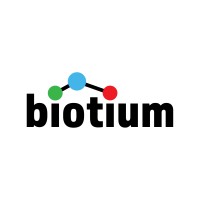CELA3B Monoclonal / APC / CELA3B/1811
Product Details
| Description | Mouse Monoclonal anti-CELA3B / ELA3B (CELA3B/1811) | |
|---|---|---|
| Conjugate | APC | |
| Clone | CELA3B/1811 | |
| Target Species | Human | |
| Applications | ELISA, FC, IF, WB | |
| Supplier | Biotium | |
| Catalog # | Sign in to view product details, citations, and spectra | |
| Size | ||
| Price | ||
| Antigen | ||
| Host | ||
| Isotype |
About CELA3B
Elastases form a subfamily of serine proteases that hydrolyze many proteins in addition to elastin. Humans have six elastase genes which encode the structurally similar proteins elastase 1, 2, 2A, 2B, 3A, and 3B. Unlike other elastases, elastase 3B has little elastolytic activity. Like most of the human elastases, elastase 3B is secreted from the pancreas as a zymogen and, like other serine proteases such as trypsin, chymotrypsin and kallikrein, it has a digestive function in the intestine. Elastase 3B preferentially cleaves proteins after alanine residues. Elastase 3B may also function in the intestinal transport and metabolism of cholesterol. Both elastase 3A and elastase 3B have been referred to as protease E and as elastase 1, and excretion of this protein in fecal material is frequently used as a measure of pancreatic function in clinical assays. [provided by RefSeq, May 2009]
Elastases form a subfamily of serine proteases that hydrolyze many proteins in addition to elastin. Humans have six elastase genes which encode the structurally similar proteins elastase 1, 2, 2A, 2B, 3A, and 3B. Unlike other elastases, elastase 3B has little elastolytic activity. Like most of the human elastases, elastase 3B is secreted from the pancreas as a zymogen and, like other serine proteases such as trypsin, chymotrypsin and kallikrein, it has a digestive function in the intestine. Elastase 3B preferentially cleaves proteins after alanine residues. Elastase 3B may also function in the intestinal transport and metabolism of cholesterol. Both elastase 3A and elastase 3B have been referred to as protease E and as elastase 1, and excretion of this protein in fecal material is frequently used as a measure of pancreatic function in clinical assays. [provided by RefSeq, May 2009]
About APC
Allophycocyanin (APC) is a fluorescent protein derived from cyanobacteria and red algae and a potent donor fluorophore to create tandem dyes that can be excited off the 633-640 nm laser. APC has an excitation peak at 650 nm and a emission peak at 660 nm.
Allophycocyanin (APC) is a fluorescent protein derived from cyanobacteria and red algae and a potent donor fluorophore to create tandem dyes that can be excited off the 633-640 nm laser. APC has an excitation peak at 650 nm and a emission peak at 660 nm.
Experiment Design Tools
Panel Builders
Looking to design a Microscopy or Flow Cytometry experiment?
Validation References
Reviews & Ratings
| Reviews |
|---|
Looking for more options?
417 CELA3B antibodies from over 10 suppliers available with over 28 conjugates.





